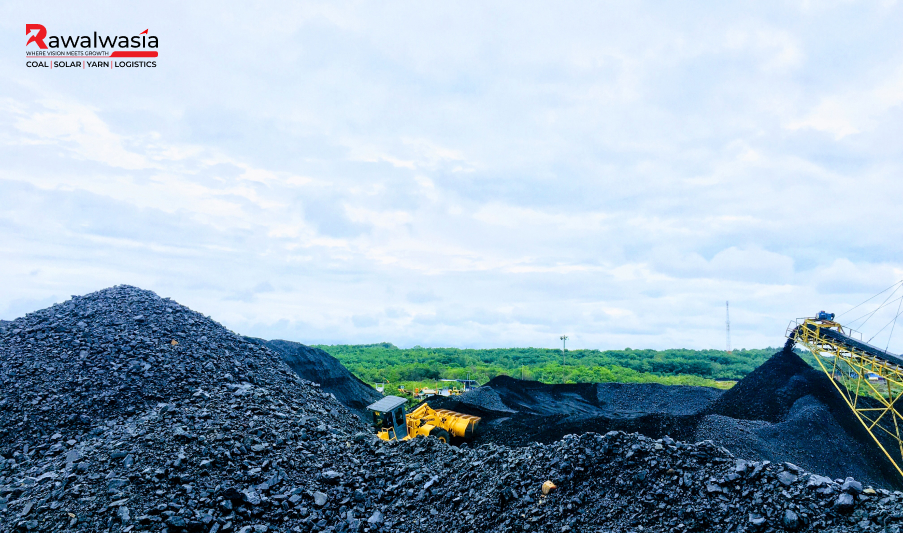India’s industrial growth has a close connection to the energy sector, with coal remaining a key fuel source that drives this economic engine. As the nation seeks to reach new levels in infrastructure, manufacturing, and exports, the need for dependable, top-notch fuel has become essential. Indian coal suppliers stand at the core of this supply chain, playing a crucial part to power industries, maintain steady operations, and keep the economy moving forward.
1. Coal: The Backbone of Industrial India
Even as the world moves toward renewable energy, coal still powers most of India’s energy needs. It generates over half of the country’s electricity and keeps many industries running. While green energy sources are on the rise, coal remains cheap, reliable, and easy to scale up. This makes it a must-have for many sectors. Renewable options are growing, but they can’t yet match coal’s benefits in cost steady supply, and large-scale use that many industries depend on.
2. Industries that Rely Heavily on Coal
- Power Generation
Coal-fired power stations consume more coal than any other industry in India. As the country’s population grows, a steady supply of electricity becomes essential. These plants provide a stable foundation for power production and help maintain grid reliability.
- Steel Manufacturing
Coking coal is a key input in steel manufacture. The Indian steel sector, being a pillar of infrastructure growth, relies greatly on quality and timely coal supply for blast furnaces and thermal processes.
- Cement Industry
Coal powers the kilns that convert raw materials into cement. Without assured coal supply, cement production stops—disrupting construction schedules and infrastructure.
- Brick Kilns, Textiles & Other Sectors
Brick kilns, textile industries, and even a few paper and sugar industries employ coal for operations that are heat-based. These industries depend on both small and large-scale coal suppliers for the continuity of business.
3. How Indian Coal Suppliers Fulfill Industrial Demand
Indian public and private suppliers of coal play the most important role as middlemen, whose task is to deliver coal to industries in the correct quantity, quality, and time. Their activities are:
- Domestic Sourcing: Suppliers source coal from Indian mines, predominantly from Coal India and its subsidiaries.
- Imports Management: As demand increases, suppliers also import coal from Indonesia, South Africa, and the USA to fulfill quality and calorific value specifications.
- Logistics & Distribution: From railway rakes to road transport and port handling, logistics management is a critical responsibility of suppliers to supply coal within India.
- Custom Grading: Numerous industrial customers require customized ash, moisture, or size specifications, which suppliers provide through proper screening and processing.
4. Quality, Consistency, and Compliance
Coal is not merely a matter of availability—it’s a matter of consistency and quality. Indian suppliers invest in:
- Lab Testing to ensure the desired calorific value, moisture, ash content, and volatile matter.
- Grading and sorting to match various industrial requirements, whether for thermal combustion or metallurgical applications.
- Regulatory Compliance, including licenses, GST invoicing, and compliance with pollution norms.
Such investment in quality not only increases industrial output but also reduces machine wear and fuel wastage.
5. Managing Market Volatility
The coal market is vulnerable to price volatility because of geopolitical tensions, freight rates, and local cycles of demand. Indian suppliers need to be agile:
- Strategic Imports during shortages to stabilize prices
- Stockpiling before the monsoon season to prevent delays in mining and transportation
- Clear Communication with clients for improved demand planning
These practices assist industries in reducing fuel risks and ensuring uninterrupted operation.
6. The Future: Indian Coal Suppliers in a Sustainable Economy
As India makes global commitments towards sustainability, the coal industry is evolving, not vanishing. Indian coal suppliers are gradually:
- Promoting blended fuels (e.g., mixing coal with biomass)
- Encouraging clean coal technologies for lower emissions
- Partnering with companies to optimize combustion and reduce wastage
- Exploring opportunities to support the energy transition by integrating into green logistics and hybrid supply chains
Their adaptability will be vital as India balances energy security with environmental responsibility.
Conclusion
The role of Indian coal suppliers extends beyond simply delivering fuel—they are enablers of industrial growth, stabilizers in volatile markets, and partners in India’s journey toward economic resilience. As industries continue to evolve, having a reliable, quality-conscious, and forward-thinking coal supplier will remain key to operational efficiency.
For businesses that rely on coal, choosing the Rawalwasia isn’t just a transaction—it’s a strategic decision. And as the nation progresses, these behind-the-scenes partners will continue to power India, one delivery at a time.






